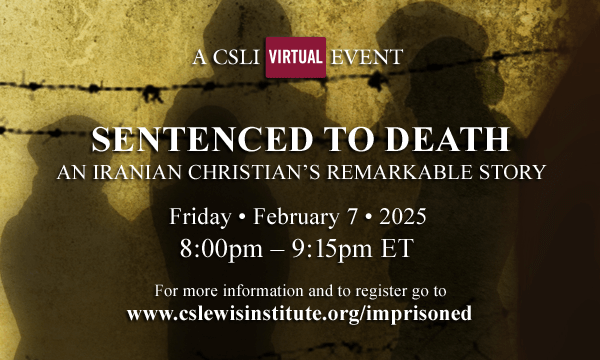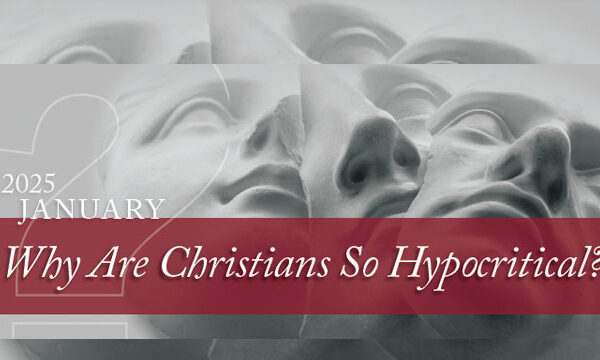Back to series

February 2015
In the book, The Four Loves, C.S. Lewis makes a case for the importance of the love expressed between two friends, that differs from the romantic love of Eros or the Affection a parent feels for a child. He writes,
 When either Affection or Eros is one’s theme, one finds a prepared audience. The importance and beauty of both have been stressed and almost exaggerated again and again. Even those who would debunk them are in conscious reaction against this laudatory tradition and, to that extent, influenced by it. But very few modern people think Friendship a love of comparable value or even a love at all. I cannot remember that any poem since In Memoriam, or any novel, has celebrated it. Tristan and Isolde, Antony and Cleopatra, Romeo and Juliet, have innumerable counterparts in modern literature: David and Jonathan, Pylades and Orestes, Roland and Oliver, Amis and Amile, have not. To the Ancients, Friendship seemed the happiest and most fully human of all loves; the crown of life and the school of virtue. The modern world, in comparison, ignores it. We admit of course that besides a wife and family a man needs a few “friends.” But the very tone of the admission, and the sort of acquaintanceships which those who make it would describe as “friendships,” show clearly that what they are talking about has very little to do with that Philia which Aristotle classified among the virtues or that Amicitia on which Cicero wrote a book. It is something quite marginal; not a main course in life’s banquet; a diversion; something that fills up the chinks of one’s time. How has this come about? The first and most obvious answer is that few value it because few experience it…Without Eros none of us would have been begotten and without Affection none of us would have been reared; but we can live and breed without Friendship…Friendship arises out of mere Companionship when two or more of the companions discover that they have in common some insight or interest or even taste which the others do not share and which, till that moment, each believed to be his own unique treasure (or burden). The typical expression of opening Friendship would be something like, “What? You too? I thought I was the only one.”…It is when two such persons discover one another, when, whether with immense difficulties and semi-articulate fumblings or with what would seem to us amazing and elliptical speed, they share their vision—it is then that Friendship is born. And instantly they stand together in an immense solitude.
When either Affection or Eros is one’s theme, one finds a prepared audience. The importance and beauty of both have been stressed and almost exaggerated again and again. Even those who would debunk them are in conscious reaction against this laudatory tradition and, to that extent, influenced by it. But very few modern people think Friendship a love of comparable value or even a love at all. I cannot remember that any poem since In Memoriam, or any novel, has celebrated it. Tristan and Isolde, Antony and Cleopatra, Romeo and Juliet, have innumerable counterparts in modern literature: David and Jonathan, Pylades and Orestes, Roland and Oliver, Amis and Amile, have not. To the Ancients, Friendship seemed the happiest and most fully human of all loves; the crown of life and the school of virtue. The modern world, in comparison, ignores it. We admit of course that besides a wife and family a man needs a few “friends.” But the very tone of the admission, and the sort of acquaintanceships which those who make it would describe as “friendships,” show clearly that what they are talking about has very little to do with that Philia which Aristotle classified among the virtues or that Amicitia on which Cicero wrote a book. It is something quite marginal; not a main course in life’s banquet; a diversion; something that fills up the chinks of one’s time. How has this come about? The first and most obvious answer is that few value it because few experience it…Without Eros none of us would have been begotten and without Affection none of us would have been reared; but we can live and breed without Friendship…Friendship arises out of mere Companionship when two or more of the companions discover that they have in common some insight or interest or even taste which the others do not share and which, till that moment, each believed to be his own unique treasure (or burden). The typical expression of opening Friendship would be something like, “What? You too? I thought I was the only one.”…It is when two such persons discover one another, when, whether with immense difficulties and semi-articulate fumblings or with what would seem to us amazing and elliptical speed, they share their vision—it is then that Friendship is born. And instantly they stand together in an immense solitude.
Lovers seek for privacy. Friends find this solitude about them, this barrier between them and the herd, whether they want it or not. They would be glad to reduce it. The first two [friends] would be glad to find a third.1
C.S. Lewis speaks about friendship from his own experience. He came to faith through the witness of friends and valued that Friendship Love throughout his life, making time to eat with and talk regularly with his friends. The gift of Friendship in our busy, sex- and work-obsessed, frenetic modern world may be a rare commodity yet true Friendship is worth praying for and pursuing.
“Jonathan said to David, ‘Go in peace, for we have sworn friendship with each other in the name of the Lord, saying, “The Lord is witness between you and me, and between your descendants and my descendants forever.”’”
1 SAMUEL 20:42a (NIV)
1 C.S. Lewis, The Four Loves, in The Beloved Works of C.S. Lewis. International Press: New York, 1984, pp. 244-248.
 COPYRIGHT: This publication is published by C.S. Lewis Institute; 8001 Braddock Road, Suite 301; Springfield, VA 22151. Portions of the publication may be reproduced for noncommercial, local church or ministry use without prior permission. Electronic copies of the PDF files may be duplicated and transmitted via e-mail for personal and church use. Articles may not be modified without prior written permission of the Institute. For questions, contact the Institute: 703.914.5602 or email us.
COPYRIGHT: This publication is published by C.S. Lewis Institute; 8001 Braddock Road, Suite 301; Springfield, VA 22151. Portions of the publication may be reproduced for noncommercial, local church or ministry use without prior permission. Electronic copies of the PDF files may be duplicated and transmitted via e-mail for personal and church use. Articles may not be modified without prior written permission of the Institute. For questions, contact the Institute: 703.914.5602 or email us.
-
Recent Podcasts
Finding God Through Science – Dr. Michael Houts’ Story
by Michael Houts, Jana Harmon on January 31, 2025Dr. Michael Houts shares his journey of science,...Read More
-
William Wilberforce and His Circle of Friends
by Richard L. Gathro on January 24, 2025
-
From Anti-Christian to Pastor – Brian Smith’s Story
by Jana Harmon, Brian Smith on January 17, 2025
-
Recent Publications
Why Are Christians So Hypocritical?
by William L. Kynes on January 1, 2025Oh, the hypocrisy of those Christians—they talk so...Read More
-
How Artists and Their Art Can Point Us to the Creator
by Russ Ramsey on December 2, 2024
-
What about Jesus’s Childhood?
by Jim Phillips on December 1, 2024
0
All Booked
0.00
All Booked
0.00
All Booked
23931
GLOBAL EVENT: Sentenced to Death with Maryam Rostampour-Keller, 8:00PM ET
https://www.cslewisinstitute.org/?event=global-event-sentenced-to-death-with-maryam-rostampour-keller-800pm-et&event_date=2025-02-07®=1
https://www.paypal.com/cgi-bin/webscr
2025-02-07

Next coming event
Days
Hours
Minutes
Seconds
GLOBAL EVENT: Sentenced to Death with Maryam Rostampour-Keller, 8:00PM ET
On February 7, 2025 at 8:00 pmSpeakers

C.S. Lewis Institute
Author
Team Members
C.S. Lewis Institute
Author
C.S. Lewis Institute, in the legacy of C.S. Lewis, works to develop wholehearted disciples of Jesus Christ who will articulate, defend, share, and live their faith in personal and public life. Founded in 1976 by Dr. James Houston and James R. Hiskey, the Institute provides leading teachers who address important issues of the day from the perspective of Biblical orthodoxy, while also providing discipleship for individuals in small groups.





